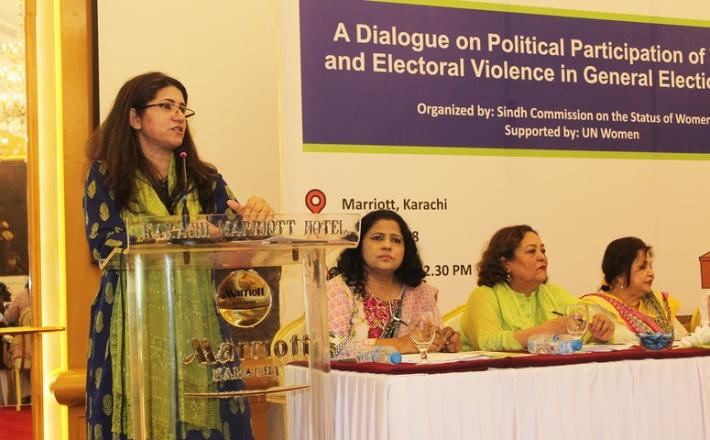Pakistan: 3.8m more women added to electoral rolls due to registration drive, says ECP representative
Source: Dawn
An election commission representative has informed that the ECP’s aggressive registration drive in collaboration with Nadra and civil society had registered as many as 3.8 million women voters in recent months, compared to the initially identified 12 million women voters who were left out of the electoral rolls.
Nighat Siddique, ECP’s Additional Director General of Gender Affairs, was speaking at a dialogue, organised by Sindh Commission on Status of Women (SCSW) in association with the United Nations Entity for Gender Equality and the Empowerment of Women (UN Women) on political participation of women and electoral violence, here on Friday. The seminar was attended by women candidates — independent and those contesting elections from different party platforms — and civil society activists.
Click here to read the full article published by Dawn on 11 July 2018.

An election commission representative has informed that the ECP’s aggressive registration drive in collaboration with Nadra and civil society had registered as many as 3.8 million women voters in recent months, compared to the initially identified 12 million women voters who were left out of the electoral rolls.
Nighat Siddique, ECP’s Additional Director General of Gender Affairs, was speaking at a dialogue, organised by Sindh Commission on Status of Women (SCSW) in association with the United Nations Entity for Gender Equality and the Empowerment of Women (UN Women) on political participation of women and electoral violence, here on Friday. The seminar was attended by women candidates — independent and those contesting elections from different party platforms — and civil society activists.
Click here to read the full article published by Dawn on 11 July 2018.